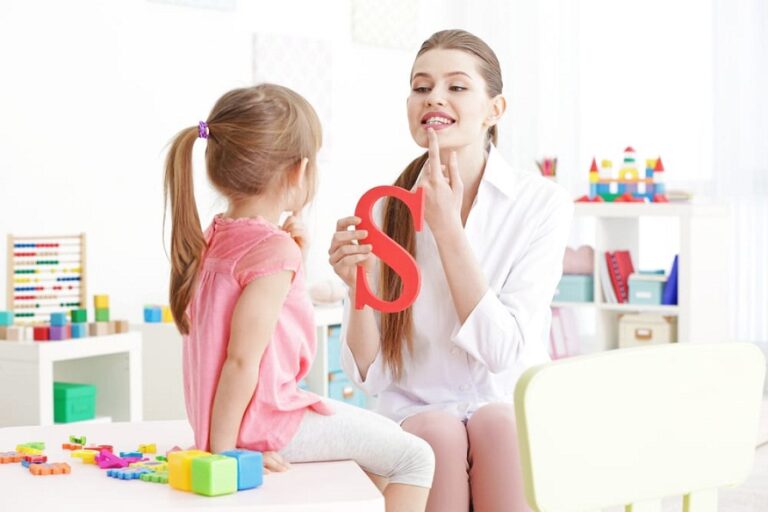Speech therapy for children is crucial to assisting young children in overcoming communication difficulties. Encouraging these sessions can greatly improve their efficacy by guaranteeing that the kids are interested and involved. These are a few ideas for making children’s speech therapy enjoyable, which can boost their engagement and lead to improved results.
Include Play and Games
Play and games are effective aids for speech therapy. They turn routines that could otherwise seem boring into thrilling pursuits. It is possible to modify beloved games like “Simon Says” to emphasise speech and language objectives like practising particular sounds or following multi-step instructions. Children can be encouraged to talk and engage through board games that demand verbal communication, such as “Candy Land” or “Guess Who?”
Role-Playing and Storytelling
Role-playing and storytelling are great ways to inject some fun into speech therapy sessions. By encouraging children to write their own stories or play out scenarios, we can stimulate their imaginations while concentrating on language skills. By role-playing various characters or scenarios, we can rehearse vocabulary, sentence structure, and conversational skills in a laid-back and entertaining environment. Additionally, this approach teaches kids how language is used in real-world contexts.
Singing and Music
Singing and music therapy can be quite successful when combined. Many kids love to sing, and they’re more likely to join in on musical events. Repeated lyrics in songs can assist in strengthening speech patterns and enhance recall. Furthermore, because singing provides a natural structure for speech development, the rhythm and melody can help youngsters enunciate words and sounds more easily.
Crafts and Visual Aids
Speech therapy sessions might benefit from the creative and enjoyable addition of visual aids and crafts. Children can learn and retain words and concepts with the aid of picture cards, flashcards, and storybooks that have colourful images. Craft projects that encourage language use and communication include making puppets and sketching scenarios. In addition to adding enjoyment to the lessons, these exercises support learners who learn best visually or kinaesthetically, which improves their overall learning process.
Physical Activities
Incorporating physical activities can enhance the dynamic and engaging nature of speech therapy sessions. Speech and language tasks can be included in simple movement games, scavenger hunts, and obstacle courses. Children could be required to follow spoken directions to finish an obstacle course or describe the items they uncover during a treasure hunt. These exercises keep kids busy and involved by combining speech practice with physical activity.
Personal Interests
Customising speech therapy sessions to children’s interests can greatly enhance their participation and enjoyment. If the youngster has an animal passion, games, stories, and activities with an animal theme can be included in sessions. Using sports-related vocabulary and scenarios can make learning more engaging and meaningful for a child who is interested in sports. Therapists can create an environment that is both encouraging and inspiring by tailoring therapy activities to the child’s interests.
Positive Reinforcement
A key component of making speech therapy enjoyable and successful is positive reinforcement. Praising kids for their achievements, no matter how tiny, boosts their self-esteem and motivates them to keep trying. To encourage kids, rewards like stickers, tiny toys, or more playtime might be given. Fostering a climate of support and encouragement helps kids feel important and motivated to participate in therapy.
Conclusion
Maintaining children’s motivation and engagement during speech therapy requires making it enjoyable for them. By using games, storytelling, music, crafts, physical activities, individual interests, and positive reinforcement, therapists can design engaging and productive sessions that support kids in confidently and enthusiastically developing their speech and language abilities.












+ There are no comments
Add yours